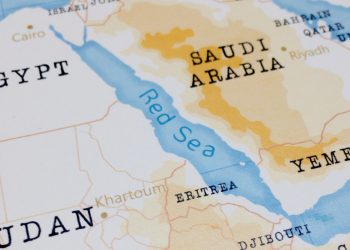Today in Geneva, the United Nations and the Russian Federation agreed on the extension of the Black Sea Grain Initiative by 60 days which is half the number of days agreed when it first expired in November.
Rebeca Grynspan, Secretary-General of the UN Conference on Trade and Development, and Martin Griffiths, the Under-Secretary-General for Humanitarian Affairs and Emergency Relief Coordinator, met with a high-level delegation from the Russian Federation led by Deputy Foreign Minister Sergey Vershinin.
The discussions focused on the implementation of the two agreements signed on 22 July 2022: the Black Sea Grain Initiative between the Russian Federation, Türkiye, Ukraine and the United Nations; and the Memorandum of Understanding between the Russian Federation and the UN, to facilitate unimpeded exports of food and fertilizer.
From today's noon briefing: @UN remains totally committed to the Black Sea Grain Initiative, as well as our efforts to facilitate the export of Russian food and fertilizer. pic.twitter.com/EhNiqLHvlp
— UN Spokesperson (@UN_Spokesperson) March 13, 2023
A day before the extension was finalized, International Association of Dry Cargo Shipowners (INTERCARGO had warned that Initiative is essential in order to avoid a global food availability crisis in 2023 due to continued high fertilizer prices.
The two agreements have had a positive impact on global food security, with millions of tons of grain reaching global markets, to alleviate the supply chain crisis stemming largely from Russia’s invasion of Ukraine.
The FAO Food Price Index covering a basket of staple foods has now dropped for 10 consecutive months since reaching record high levels in March last year, clearly demonstrating the positive impact of both agreements on global food prices.
The Black Sea Grain Initiative has allowed the exports of 24 million MT of grains and over 1,600 secure vessel voyages through the Black Sea with 55% of food exports going to developing countries. The continuation of the Black Sea Grain Initiative is crucial for global food security, as grain and fertilizer prices and availability have not returned to pre-war levels, causing hardship particularly in developing countries.
The UN Secretary-General, António Guterres, has confirmed that the UN will do everything possible to preserve the integrity of the Black Sea Grain Initiative and ensure its continuity. The UN’s support to the agreements made in Istanbul is part of the global response to the most severe cost-of-living crisis in a generation.































































